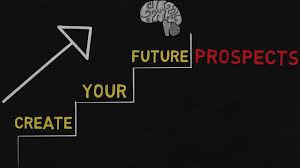The term “Gidler” has piqued the interest of professionals and enthusiasts across various industries. While relatively obscure, understanding Gidler could unlock new methodologies or technologies.
Gidler refers to a hypothetical concept or term used to describe innovative methodologies or processes, primarily in technology and academia. Its exact definition and applications still need to be clarified and subject to ongoing exploration and debate.
This article delves into what Gidler might entail, its origins, applications, and potential future importance.
The Origin Of Gidler:

Theoretical Background:
The exact origins of the term “Gidler” are difficult to pinpoint. It could have emerged from technological jargon or as a neologism in a niche academic paper. Initially, it may have described a specific process or phenomenon within data analysis or software development.
Evolution Of The Concept:
Over time, Gidler’s understanding and application have evolved. What might have started as a technical term is now finding its place in different contexts, such as digital marketing, gaming, or even cultural studies, adapting its meaning to fit new frameworks and uses.
The Current State Of Gidler:
Gidler In Modern Context:
Today, Gidler could be referenced in discussions about innovative software solutions, in crafting digital narratives, or as part of strategic business analyses. Its applicability in diverse fields suggests that Gidler is not confined to one strict definition but is rather a dynamic concept.
Case Studies And Real-World Examples:
For instance, a startup might use Gidler methodologies to enhance user engagement through personalized content in the tech industry. Alternatively, in academia, researchers could apply Gidler principles to study the impact of digital transformation on traditional business models.
Challenges And Controversies Regarding Gidler:
Gidler, as a concept or term, comes with its share of challenges and controversies. While its potential applications and importance might be vast, the ambiguity and novelty of the term also present significant obstacles and areas of debate.
Read: /Gv8ap9jpnwk – A Comprehensive Guide To Digital Security
Major Challenges:

Lack Of Clear Definition:
The primary challenge with Gidler is its vague definition. As a relatively new or niche term, there may not be a universally accepted understanding of what Gidler entails, which complicates its use in professional and academic settings. Without a clear definition, applying the concept consistently becomes problematic.
Standardization Issues:
Integrating Gidler into existing frameworks or models can lead to inconsistencies without established standards or guidelines. Industries that might benefit from standardized Gidler methodologies—like technology development, academic research, or business analytics—find this lack of standardization a barrier to adoption.
Adaptability And Scalability:
As Gidler evolves, another challenge is ensuring that it adapts to various scales of operation across different sectors. What works in a small-scale experimental environment might not hold up in large-scale applications, raising questions about its scalability and adaptability.
Educational And Training Resources:
There is likely a significant gap in educational resources for teaching and training on Gidler-related methodologies. This gap can delay its acceptance and integration into mainstream practices, as potential users may need help understanding how to implement or benefit from Gidler effectively.
Controversial Aspects:
Debate Over Scientific Legitimacy:
Critics of Gidler may question its scientific validity, arguing that it is more of a buzzword than a concrete, scientifically-backed concept. This scepticism can hinder funding for research related to Gidler and reduce its credibility in academic circles.
Overuse As A Buzzword:
In some sectors, terms that initially hold significant meaning can become diluted as they are overused as buzzwords. Gidler could be co-opted by marketing efforts, which may overemphasize its novelty or effectiveness without providing substantial evidence of its benefits.
Ethical Concerns:
Depending on how Gidler is defined and applied, there may be ethical concerns related to privacy, data security, and the potential for misuse of information. As with many emerging technologies or concepts, ensuring that Gidler is used responsibly is crucial.
Resistance From Traditionalists:
In industries or academic fields with established methods and theories, introducing a new concept like Gidler can meet resistance. Traditionalists might view it as unnecessary or disruptive, preferring to stick with known frameworks rather than adopting new, untested ideas.
Moving Forward:
Addressing these challenges and controversies is crucial for Gidler’s future development and integration. Open dialogue, rigorous research, and collaborative efforts between industries and academia can clarify the concept’s definitions, establish standards, and explore its full potential responsibly and ethically. This approach will address the current shortcomings and pave the way for Gidler to become a valuable tool in various professional landscapes.
Read: Örviri – Unraveling The Mysteries Of A Cultural Enigma
Future Prospects:

Market Demand:
Growth Opportunities: As the industry Gidler operates in expands, there will be more opportunities to capture new customers and increase market share.
Consumer Trends: Staying attuned to consumer preferences and trends can help Gidler innovate and stay relevant.
Technological Advancements:
Innovation: Investing in research and development to create cutting-edge products or services can provide a competitive edge.
Automation and Efficiency: Leveraging technology to streamline operations can reduce costs and improve productivity.
Competitive Positioning:
Differentiation: Establishing a unique selling proposition (USP) can help Gidler stand out from competitors.
Strategic Alliances: Forming partnerships and collaborations can enhance Gidler’s market reach and capabilities.
Strategic Planning:
Long-Term Vision: Developing a clear long-term strategy that aligns with market dynamics and company goals.
Agility: Maintaining flexibility to adapt to market changes and unforeseen challenges.
Sustainability And Corporate Responsibility:
Sustainable Practices: Adopting environmentally friendly practices can attract eco-conscious consumers and comply with regulations.
Corporate Social Responsibility (CSR): Engaging in CSR activities can enhance Gidler’s brand image and foster community goodwill.
Financial Health:
Investment and Funding: Securing funding for expansion and innovation initiatives.
Profitability: Ensuring that Gidler maintains a healthy profit margin to sustain growth and reinvest in the business.
Talent And Leadership:
Skilled Workforce: Attracting and retaining top talent is crucial for driving innovation and operational excellence.
Leadership: Strong leadership can guide Gidler through strategic decisions and market challenges.
Global Expansion:
New Markets: Exploring opportunities in international markets can diversify revenue streams and reduce dependency on local markets.
Cultural Adaptation: Understanding and adapting to the cultural nuances of different markets.
Customer Engagement:
Customer Experience: Enhancing the customer experience can lead to higher satisfaction and loyalty.
Feedback Loop: Implementing mechanisms to gather and act on customer feedback.
Risk Management:
Identifying Risks: Proactively identifying potential risks and developing mitigation strategies.
Crisis Management: Having a robust plan in place to manage crises and minimize their impact on the business.
Conclusion:
Gidler remains a mysterious and evolving concept with the potential to impact multiple fields significantly. Gidler could offer valuable insights and tools for innovation and efficiency as it becomes better understood and defined.
Faqs About Gidler:
1. Can Gidler Be Applied Across Different Industries?
While still in the exploratory stages, Gidler has potential applications across various industries, including technology, education, and business analytics.
2. Is There A Community Or Forum Where I Can Discuss Gidler?
Although specific forums for Gidler may not yet exist, related discussions can often be found in tech innovation forums or academic conferences focusing on emerging concepts.
3. How Can I Contribute To The Development Of Gidler?
Engaging with academic research, participating in relevant conferences, and collaborating on projects focused on emerging methodologies can contribute to Gidler’s development.
4. Are There Any Books Or Publications On Gidler?
As a developing concept, there may be limited books specifically on Gidler, but related topics might be covered in publications dealing with innovation in technology and methodology.
5. How Does Gidler Impact Job Roles And Responsibilities?
Gidler could redefine job roles by introducing new skills and responsibilities, particularly in data analysis, software development, and strategic planning.
6. Is Gidler Recognized In Academic Curricula?
Gidler may not be widely recognized in formal academic curricula, but it might be included in innovation and emerging technologies courses.
Read:
